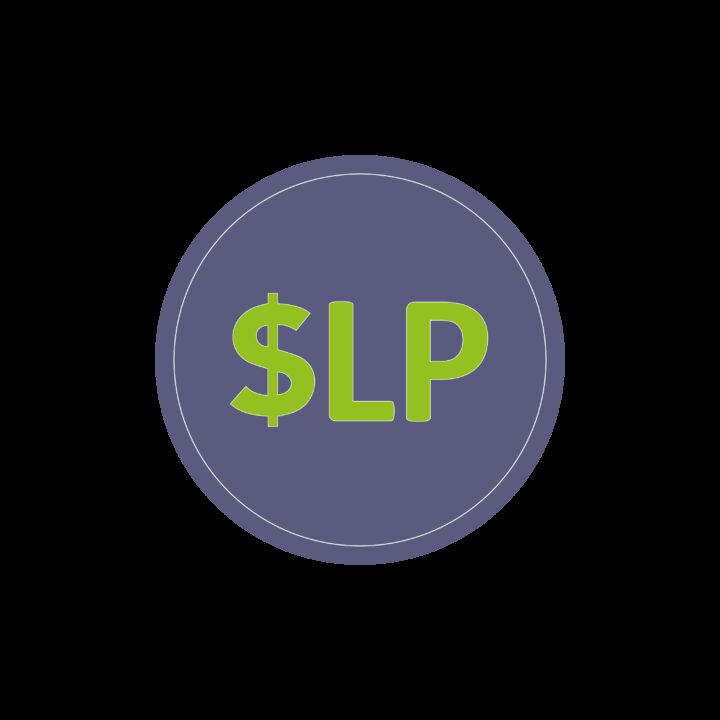5 Real Reasons You Should Pause Debt Payments
This post may contain affiliate links, which helps us to continue providing relevant content and we receive a small commission at no cost to you. As an Amazon Associate, I earn from qualifying purchases. Please read the full disclosure here.
Paying off debt can seem like a roller coaster.
You have highs of making significant progress paying off a debt or putting a significant amount of cash towards a debt.
Then, struck with lows that you aren’t making progress as fast as you want. Or even worse realize you are unable to make extra debt payments due to loss of income or financial uncertainty.
Should you pause debt snowball?
Delaying your debt payoff date is probably the last thing that you want to do.
But, you are internally wrestling with what to do. What would be the best advice given the situation you are facing right now?
What is the best answer on when to pause paying off debt?
Well, first of all, there are a few variables you need to consider; we will discuss them further down in the post.
There are real reasons to pause your debt snowball. Some within your control and sometimes outside your control.
The reality is pausing paying off debt may be the best decision especially during a season of uncertainty.
Let’s dig in and discuss when pausing paying off debt is a good idea.

When to Pause Paying Off Debt
If you are in storm mode and working fast to pay off your debt, the last thing you want to do is pause it.
Unfortunately, you are reading this post because you are debating whether to pause your debt pay off.
First of all, don’t ever make a rash decision.
That is a knee jerk reaction to what is happening around you. You need to be thinking clearly in order to make a rationale decision regarding the long-term personal finances. (Hint: this is a great principle to remember with managing money.)
Typically, if you are looking to pause your debt payments, there are clear reasons to do so.
Let’s discuss the reasons to pause paying off debt.
1. Add Money to Emergency Fund
For whatever reason your emergency fund has dipped below the minimum emergency fund size, then it is best to pause your debt snowball.
Use the money you normally put towards extra debt payments and add the money to your emergency fund.
This is a temporary pause in your debt payments.
As soon as your emergency fund is fully funded again, then quickly continue your extra debt payments.
2. Loss of Income

A loss of income is a gut punch to your budget and your money goals.
Your plans are quickly derailed and you are left scrambling.
Sometimes you knew a loss of income was a possibility; others times you are left completely sidetracked with your personal finances.
The first step is to assess whether or not you can cover your basic expenses first.
Next, determine how long you anticipate to find other ways to supplement the lost income. This step may take a few months to fully replace a sudden loss of income.
If you were laid off, then immediately fill for unemployment assistance. While you won’t receive a 100% of the income you normally where paid, you will get something that will help you pay bills during this time of personal crisis. Every state has different formulas to calculate unemployment benefits, so check with your state’s unemployment website.
Pausing your extra debt payments is a necessity while still making minimum debt payments is mandatory.
The focus is on maintaining and paying your basic expenses during a loss of income. If you have leftover money, then save it for the time-being.
Must Read: 7 Tips on How to Survive a Sudden Loss of Income
3. Major Life Change
In some cases, a major life change is a reason to temporarily stop extra debt payments. That is why we prefer to recommend the debt avalanche over debt snowball.
A major life changes include birth of a baby, death of a loved one, relationship change, cross country move, injury/illness, or change in employment.
During this time, you need to focus on making sure you can meet all of your expenses. As a result, pausing extra debt payments may be a smart idea.
Specifically, you need know the income coming in will handle your expenses for the next six months at the bare minimum.
A great way to do this is with cash flow planning. This type of budgeting forecasts that amount of money coming in and the amount of money going out to cover expenses.
However, many times it is impossible to make a cash flow budget due to your circumstances and that is understandable. You are processing the huge life event. So, for now, pause extra debt payments and when you ready, come back to paying off your debt.
4. Change in Expenses

While paying off debt, your expenses and income will change. In the paying off debt season, the ebbing of income and expenses is a normal part of getting out of debt.
A change in expenses may or may not be a reason to delay extra snowball payments.
The key is understanding when a change in expenses justifies a pause of the debt snowball.
Here is a good example when to pause debt snowball:
You just bought a new house. Previously, your rent was $1200. Now, your mortgage payments will be $1500. That is an increase of $300 of monthly expenses. While long-term, buying a house is a solid decision.
In the short term, pausing extra debt payments is a wise choice until you settled. (Moving and houses come with a bunch of unexpected expenses at the beginning – it is part of homeowner.)
Once the dust settles and you are used to the increased expenses, then jump back on your debt payoff mode.
And now a bad example of pausing extra debt payments:
Your friends just joined a local CrossFit gym and want you to join. The monthly membership cost is $155.
You just don’t have the money in your budget to cash flow it. So, you are considering pausing your extra debt payments or paying less on your debts, to get a CrossFit membership and save face because you don’t want to admit the state of your finances.
That is the wrong time and reason to pause your debt snowball.
5. Economic Instability
During a time of economic instability, it is highly recommended to pause all extra debt payments.
There is too much unknown to justify paying off debt at a gazelle speed.
Major economic crises don’t happen all of the time – thankfully. But, when an economic crisis hits, you need to be prepared.
The best way to prepare your finances during an economic instability is to save money.
So, that means temporarily pausing all extra debt payments until the current economic crisis passes.
What to Do Instead: Save all of the money into a savings account if possible. Once the economic crisis has passed, then move the saved money to paying off all of your debts at that time.
Resources to Delay Debt Payments

In times of extreme economic unrest or personal crisis, you might be eligible to defer your debt payments, student loan payments, and maybe even your mortgage.
Be careful to read all of the fine details if you choose to postpone debt payments.
For instance, you may be able to delay your mortgage for three months. However, when your fourth mortgage payment is due, you might be required to pay the current mortgage payment as well as the previous three mortgage payments.
In extreme times of crises, the government may pass additional bills to help ease the financial toll the current crisis is causing on people. These are always changing and the terms and deadlines will vary. So, make sure to contact the debt company for additional help.
The key is to be in contact with your debt servicer to ask for deferment, forbearance, or economic hardship status.
As always, watch out for scams. If it is too good to be true, then it probably is a scam.
Questions to Ask Yourself Before Stopping Extra Debt Payments

Now, everyone is in a different financial position. You need to ask yourself certain questions as it relates to your personal situation.
First of all, don’t make any rash decisions.
You must first decide what is best for you and your situation before pausing your debt snowball.
Just because others around you decided to stop making extra debt payments, it doesn’t mean it is the best decision for you.
When you are faced with deciding to continue your gazelle extra debt payments, ask yourself:
- Can I cash flow it?
- Is this appropriate time to use emergency fund?
- How long do I foresee stoping extra debt payments?
- What are my plans with the money that normally goes to extra debt payments?
- Will this pause debt snowball ruin my motivation?
- How long will this stretch out my payoff date?
- Is this the wise decision based on my circumstances?
These questions will keep you determine the smart choice for you and your state of affairs.
Above we gave specific reasons to pause your debt payments. But, ultimately, you need to make the final decision.
At the end of the day, you still want to pay off your debt. The sooner, the better. But sometimes, you may have to pause your debt snowball along your journey to becoming debt free.
Restock Emergency Fund Before Restarting Debt Snowball

Just remember this crucial factor when paying down debt…
You need to have a solid emergency fund first. This is one of the steps along the Money Bliss Steps to Financial Freedom.
That happens before you pay an extra penny towards any of your debt.
If a personal crisis has caused you to pause debt payments and use some of your emergency fund, then your first priority is saving money in an emergency fund.
You must have the appropriate size emergency fund set aside for your household.
Yes, $1000 is the minimum emergency fund. But, learn how much you need based on your household, expenses and comfort level. More than likely, your emergency fund may need to be slightly larger than you thought.
Must Read: Emergency Fund – Everything You Need to Know
Best Case Scenario When to Pause Paying Off Debt

This would be the perfect, best case scenario which more than likely may not happen. But, this will help you with staying motivated and not losing track of becoming debt free.
Save all of the extra debt payments into a separate savings account. When the reason you paused your debt payments passes, then you pay off your debt with a lump sum of money.
This way you are still giving your money a purpose. You are still allocating money and budgeting like before the crisis. You are just being extra cautious to make sure you are financially stable and can withstand the personal or economic crisis affecting your life.
Then when the crisis is cleared, you can continue paying off your debt and not worry about all of the what if scenarios.
However, more than likely, you will need that money to help pay rent and other basic expenses. That is okay and a part of life. So, don’t get down on yourself. You will come out stronger on the other side (as long as you don’t give up).
Just don’t let pausing your debt snowball end up quitting paying off debt all together.
Is it Smart for you to Pause Extra Debt Payments?

Throughout this post, we highlighted whether or not you should temporarily stop making extra payments toward your debt.
The final decision is yours.
The key to becoming debt free is to ultimately pay down all of your debts.
That will help you immensely on your journey to financial freedom. Even if that seems like forever away, it truly isn’t when you stick to your money goals.
If you are forced to pause your debt snowball, that is okay. Just don’t forget to jump back to your gazelle mode once the crisis has past.
Paying off debt is a season. Don’t let that get out of debt season last your whole life.
Creative Ways to Pay Off Debt Faster
Let's face it... Money is tight when you are paying off debt. Yet, every dollar helps you reach your goals.
Here are the most creative ways to pay off your debt and then you can begin to save more money.
Invest with Teri - Make $1000 a day
Learn how to supplement your daily, weekly, or monthly income with trading so that you can pay off debt and change your financial future! This is a lifestyle trading style you need to learn.
Honestly, this course is a must for anyone who invests. You will lose more in the market than you will spend this quality education - guaranteed.
Six-Figure Debt to Six-Figure Net Worth
Learn how to reach a six figure net worth in 5 to 10 years, even if you have a massive amount of student loans.
This beginning investment course will help you pay off debt and start your path to six figures.
Stop the Student Loan Debt with Scholarship System
Before you go thousands of dollars into student loan debt, use this proven system to find scholarships and grants.
A little work today will pay off in the long run.
No starting your life with a negative net worth.
LendKey - Student Loan Refinancing
If you haven't consolidated and refinanced your loans, then this needs to be on your monthly to-do list.
Shop from a network of not-for profit, local lenders who offer low-cost and low-rate student loan refinancing. Start your application today to find the best interest rates.
Free Online Debt Snowball/Avalanche Calculator | Undebt.it
This is a free app that will help you to pay off your debt faster.
Sign up today and learn to live debt free.
Tally: Pay Off Debt Faster
Tally is the world’s first automated debt manager that makes it easy to save money, manage your cards and pay down balances faster.
Make sure to activate your account within the first 7 days.
Debt Resources:
- 5 Reasons NOT to Choose the Popular Debt Snowball Method
- How to Get Out of Debt in 5 Easy Steps
- 7 Simplistic Habits Needed for Debt Free Living
- 7 Things to Give UP to Pay Off Debt Faster

Did the post resonate with you?
More importantly, did I answer the questions you have about this topic? Let me know in the comments if I can help in some other way!
Your comments are not just welcomed; they’re an integral part of our community. Let’s continue the conversation and explore how these ideas align with your journey towards Money Bliss.










